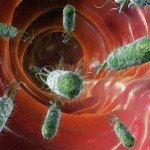http://www.naturalhealth365.com/gut-health-mental-disorders-1874.html
Research says gut health linked to mental disorders
 (NaturalHealth365) Could the cure for depression, post-traumatic stress disorder (PTSD) or anxiety actually lie in gut health? Research is turning up clues that intestinal bacteria could have a critical influence on the human brain and your mood.
(NaturalHealth365) Could the cure for depression, post-traumatic stress disorder (PTSD) or anxiety actually lie in gut health? Research is turning up clues that intestinal bacteria could have a critical influence on the human brain and your mood.
In the study, scientists working at The Brain-Body Institute, McMaster University, Ontario, Canada, have been studying whether the gut microbiome could be the key to treating or even preventing mental disorders. What they have uncovered so far is a surprising link between gut health and the body’s response to high-anxiety situations.
Improve your gut health to avoid mental disorders
The gut microbiome is the name given to the collective community of trillions of microbes living in the intestinal tract. It’s been known for some time that these miniscule inhabitants play a big role in gut health and overall wellbeing. The gut microbiome helps us with everything from digesting food to regulating the immune system.
In addition, scientists are now beginning to gain a greater understanding of the microbiome’s role in transmitting signals to the brain, a process that may have impacts on mood and behavior.
Results of the study could help not only civilians, but the military. It may be possible to improve the mental and physical resilience of solders in challenging situations of dietary changes, disrupted rhythms, changing time zones, sleep loss – and even living beneath the ocean in a submarine. Bottom line: better gut health equals better decision-making capabilities.
Science shows that gut bacteria influence mood and behavior
The researchers used laboratory mice to illustrate the critical impact that gut bacteria have on mood and demeanor. Scientists found they could even control moods of high-anxiety mice by feeding them healthy gut microbes collected from fecal material of healthy mice.
When the researchers created anxiety and stress in small mice by placing them with larger, aggressive mice for a few minutes each day, the smaller mice showed signs of stress, such as loss of appetite, reduced social interaction and nervous shaking. Researchers compared fecal samples from stressed mice to their non-stressed counterparts, and found a noticeable imbalance in the gut microbiome of the stressed mice, which exhibited a less diverse community of bacteria.
Once the stressed mice were fed the same probiotics found in the calm mice, however, their behavior improved and continued to improve over the next several weeks. Magnetic resonance spectroscopy (MRS) was used to examine brain chemistry of the mice, and identify specific brain biochemical markers when mice were stressed and when they were consuming probiotics.
Reengineering gut microbes can reduce mental disorders
Researchers say the stress biomarkers identified in the study could allow identification of someone suffering from mental disorders or at unusually high risk for developing them. Intervening before PTSD and other mental disorders become serious would allow treatment, or even prevention, using probiotics.
The next steps in the study involve transplanting fecal samples from calm to stressed mice in an effort to improve conditions of the microbiome, and with it, mental health and wellbeing. Future phases would involve clinical trials with humans using probiotics and antibiotics while measuring brain reaction at various levels of stress. Results of future research could pave the way for reengineering the gut microbes to perform specific, desired tasks, such as improving endurance or physical health.
References:
http://www.medicalnewstoday.com/articles/309600.php
https://www.sciencedaily.com/releases/2016/04/160425161324.htm
http://www.techtimes.com/articles/153769/20160426/more-than-a-gut-feeling-can-gut-microbiome-be-used-to-treat-mental-disorders.htm
No comments:
Post a Comment